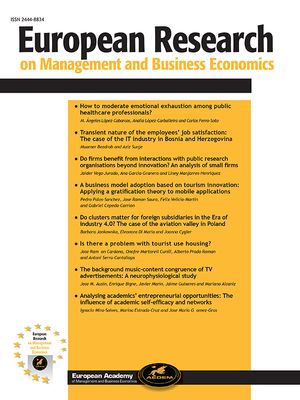En el Área Económica Europea los grupos con valores cotizados presentan sus cuentas anuales bajo normas internacionales desde 2005. La experiencia española sobre esta implantación es un proceso histórico irrepetible que merece ser investigado. En este artículo, hemos analizado las dos únicas magnitudes que los grupos estaban obligados a conciliar: el patrimonio neto y los resultados calculados bajo principios españoles e internacionales. La población objeto de estudio ha sido el 100% de las cuentas anuales de los grupos no financieros del IBEX-35 y el método de investigación aplicado el inductivo en el marco de la Teoría Positiva de la Contabilidad.
The Economic European Area decided to require public groups to prepare their financial statements under IFRS covering periods beginning on or after January 1, 2005. The Spanish experience with the implementation of IFRS in consolidated financial statements has been very positive, but it is necessary to investigate in detail the impact of this historic process. In this paper, we have focused on the analysis of the main differences the introduction of IFRS has made on the two unique figures that groups should reconcile and explain: net equities and earnings in nonfinancial groups quoted in the IBEX-35. The analysis has covered the 100% of the non financial groups of IBEX-35 financial statements and the research method applied inductive in the framework of the Positive Accounting Theory.





